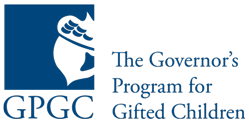Here’s the second issue of The Thinker for the summer!
Month: June 2023
Here’s the first issue of The Thinker for the summer!
Throughout the summer we will be posting weekly reports from the classes. Please let us know if there’s anything else you’d like to see or if you have any questions for specific instructors. We will be posting the first issue of The Thinker (the student newspaper) as soon as the online version is ready.
We are also posting regularly on Facebook. You don’t have to join Facebook to see our posts. The link is: https://www.facebook.com/gpgcla/
Afternoon Classes:
Choir (Colette Tanner, Instructor)
GPGC Choir Students have been working on learning vocal exercises, music literacy (rhythmic and melodic), and reading concert repertoire. Polling the students, they have chosen the theme of NATURE for our FINAL PERFORMANCE.
Critical Thinking (Robert and Jessica Markstrom, Instructors)
This week the students took an animal personality test so they could have fun and learn more about themselves. We played several different games throughout this week including Carcassonne, Score 4, Twixt, Blokus, Hippos and Crocs, Zombie Dice, Rubix Race, Tsuro, Loot, What Were You Thinking, and Trial by Trolley.
Dorm Life:
This week the students were welcomed back to the program and spent time getting acclimated to dorm life. They spent their afternoons playing Magic the Gathering and ping pong while also getting to know each other.
On Friday, students got their first weekly bank where they saw their grades for the week. Students spent time after bank going to play soccer or staying at the dorm participating in Stories with Holes where they try to figure out the missing piece in the story presented to them. We also had our first movie night where students came down with blankets and pillows to the lobby and watched Shrek on our big projector screen.
On Saturday morning, students got donuts and fruits for breakfast and were presented a workshop on how to correctly use the dorm laundry machines. They also got to decorate their own laundry magnets. Later in the day, students played Super Smash Bros. and Mario Kart on the Nintendo Switch and had a chance to go to the Rec to play basketball and other sports. For dinner, students were given Raising Cane’s. That evening we had our first dance where our sophomore students spent time teaching the freshmen our traditional dances.
Sunday began with donuts, church, and a Danny Phantom marathon in the lobby. In the afternoon, students had a chance to get Starbucks and to sing karaoke with their classmates. For dinner, we had Taco Bell, and we finished our weekend with Sundae Sunday. Students were able to pick their ice cream flavors and toppings of their choice to have as a fun end of the weekend treat!
Throughout the summer we will be posting weekly reports from the classes. Please let us know if there’s anything else you’d like to see or if you have any questions for specific instructors. We will be posting the first issue of The Thinker (the student newspaper) as soon as the online version is ready.
We are also posting regularly on Facebook. You don’t have to join Facebook to see our posts. The link is: https://www.facebook.com/gpgcla/
Freshmen (First Year) Classes:
Freshmen Science (Calvin Runnels, Instructor)
In the first week of science I, we focused on fundamentals: the scientific method, the mathematical underpinnings of scientific claims, and the basics of physics, from matter and energy to Newton’s laws. The students kicked off their summer-long Plant Experiment, in which each student is entrusted with a plant (this year, flat leaf parsley) and is allowed to change any one “variable” of its care, from what it’s watered with to where it’s located, to explore the concepts of variables, controls, and the importance of accurate and precise data collection. The students saw some exciting demos like flame tests, used laboratory-grade chemistry equipment such as graduated cylinders and electronic balances, and learned the basics of laboratory safety.
Freshman Composition (Abigail Skinner, Instructor)
We focused on annotating/reading like a writer, although we used the story “The Beginning” by Radha Zutshi Opubor to practice. The students read their copy for five minutes and annotated and then swapped papers to keep reading and annotating. I encouraged the students to read each other’s annotations and respond to them. We had a really good class discussion about the story and craft elements such as description, personification, and conflict. The students then selected their favorite craft element from the story and had free writing time to practice with the prompt “I remember”. We also discussed motivation and goals for writing and the students wrote a “Why I Write” statement. They also wrote questions for their favorite writer.
Freshmen Humanities (Chris Hebert, Instructor)
In Humanities I, we started the week getting familiar with the many empires that have risen in the Mediterranean area that gave way to the Greek empire. We discussed differences between Sparta and Athens, resulting in a brief exploration of the Peloponnesian wars. Seeing that so much of their history is rooted in mythology, students were exposed to foundational myths about the various city-states of Greece. We also took a crash course in Greek myth and looked at The Iliad and The Odyssey. We ended the week looking at Alexander the Great which will lead into Socrates, philosophy, democracy, and eventually into Plato and his Republic next week.
Sophomore (Second Year) Classes:
Sophomore Science (Calvin Runnels, Instructor)
Sophomore science has so far been focused on the study of biology. After an engaging discussion about the origins of life, symbiosis, and the genetic relationships among living organisms, we spent much of the week learning about the chemical basis for life: the importance of water and the functions and structures of the basic biomolecules (DNA/RNA, protein, lipids, and carbohydrates). We used homemade lava lamps, bubble “membranes” and strings of colored beads to bring to life the concepts of the hydrophobic effect, cell membrane structure and the genetic code.
Sophomore Composition (Abigail Skinner, Instructor)
We focused on annotating/reading like a writer this week to prep for the rest of the reading they’ll do this summer. We read and annotated various interviews and articles by various writers that discussed their experiences and motivations as writers. These included Terry Pratchett, Joan Didion, John Greene, and Jennifer Lynn Barnes. We discussed motivations for writing and our own personal goals for our writing. The students ended the week by writing a “Why I Write” statement that included their goals. I’ve passed these on to Meilyn. The students also wrote questions to their favorite living authors. I made it optional if they actually want to send the questions, but for the couple students who wanted to, I’ll send off their questions and forward any responses on to Meilyn.
Sophomore Humanities (Jessica Markstrom, Instructor)
This week served as an introduction to utopias and dystopias. Concepts included power and social structures (top-down versus bottom-up organization), censorship, happiness, developing meaningful relationships, communication, access to information, personal expression, the role of technology in our lives, and government oppression. We read through part 1 of Fahrenheit 451 (50th-anniversary edition).
Monday – we went over the syllabus. Students learned about how Thomas More’s book transformed the word utopia. Utopia used to mean “no place” and eutopia meant an idyllic or perfect place. More switched out Utopia for eutopia. We discussed how this meant that creating a utopia would be difficult. We defined dystopia and we discussed whether the current society is a dystopia or utopia. The students agreed it was a dystopia and shared their reasons for that answer. To highlight critical thinking, I provided students with information from Steven Pinker’s Enlightenment Now regarding how much society has progressed since the Enlightenment.
Tuesday – We discussed pages 3-24 of Fahrenheit 451. We discussed censorship, happiness, the effect book banning had on that society, the role technology plays in that society, reasons why that society is a dystopia, meaningfulness in communication, government regulation of people’s activities, pressure to conform to society, and ways in which our society is like and different from the society in the book.
Wednesday – We discussed pages 24-46 of Fahrenheit 451. I played the song “Fake Happy” by Paramore and asked them to apply it to a character in the novel. Discussion topics included how it’s important for people to recognize (or “see”) us, why it’s important for society to value the lives of children, how technology can isolate us from others, the importance of meaningful communication in order to build relationships with others, authoritative government structures, literary motifs like foreshadowing, and post-trauma responses (some students did not understand that Guy was having a post-traumatic nervous breakdown and had questions regarding that portion of the reading).
Thursday – We discussed pages 47-68 of Fahrenheit 451. I played the song “Shiny, Happy People” by R.E.M. and had the students relate it back to the novel. Then, I explained how the song was written as a critique of the Chinese government’s propaganda after Tiananmen Square. I briefly described the Tiananmen Square democratic protests of 1989 and the Chinese government’s response to those protests. I also showed the students pictures of the protest and pictures of Chinese propaganda after the protests. The class discussion focused on how societies that limit thinking and promote immediate satisfaction can impart short attention spans (several students related TikTok and other social media platforms to the society in the novel); how constant stimulation can make it difficult to think and communicate with others; that oppressive societies will force uniformity and equality, will attack intelligent people, and will attack people that are seen as different or that refuse to conform; that authoritative government systems will suppress freedom of expression, freedom of speech, access to information, and access to communication; parasocial relationships and how societies will sometimes use technology as a means to supplant person-to-person interactions; and how do we determine happiness.
Friday –Students worked on their Utopia Project.

